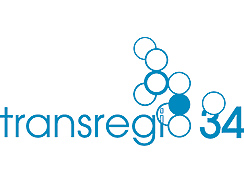Sonderforschungsbereich Transregio 34 (2006 - 2018)
Pathophysiology of Staphylococci in the Post-Genomics Era

Staphylococcus aureus is a human pathogen of increasing significance. Because antibiotic resistances are spreading, this bacterium has become a threat to the human race. A better understanding of its infection biology is urgently required to successfully combat the pathogen. In the post-genomic era, the availability of the genome sequences of several strains of S. aureus and also other staphylococcal species provides the basis for a comprehensive understanding of their cell physiology and infection biology as an entity. This is an ambitious goal that can only be accomplished if a broad spectrum of modern functional genomics technologies as well as traditional genetics and biochemical approaches are used in an integrated effort to bring the genome sequence to cell physiology. The basic concept of this Transregio (TR) initiative was to combine long-stranding expertise in Würzburg and Tübingen in cell physiology, biochemistry and infection biology of S. aureus in general with the established expertise in proteomics of Gram-positive bacteria in Greifswald. Groups for comparative genomics, trascriptomics, structureal genomics, metabolomics and bioinformatics are involved and has been particularly successful in basis understanding of cell metabolism and stress/starvation responses and in a comprehensive analysis of the regulation, function and structure of virulence factors as components of the complex gene expression network.
Further information
In the Transregional Collaborative Research Centre 34, work groups from four Universities have joined forces. Their main research focus is on the fields of functional genome research and the proteome analysis of micro organisms (University of Greifswald), physiology (University of Tübingen), the infection biology of staphylococci (University of Würzburg) and University of Münster. The central concept which unites these groups is the connection between the physiology of the pathogen and the occurrence of pathogenicity to which little attention has been paid in the past. In order to be able to acquire new insights in this area, it is planned to utilise the particular opportunities offered by functional genome research. The specialist knowledge in functional genome research has been evenly distributed over the three selected locations, i.e.: Transcriptomics in Tübingen, Würzburg and in Greifswald, structural genomics in Tübingen, various imaging procedures - particularly in Würzburg, and bioinformatics - primarily in Würzburg and in Greifswald.
Transregional Collaborative Research Centre "SFB Transregio 34" University of Greifswald
http://www.uni-greifswald.de/forschen/forschungsleistung/sonderforschungsbereiche/staphylokokken.html

